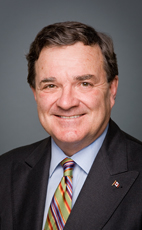Mr. Speaker, let me deal with the facts. The oil companies pay the same taxes as other Canadian businesses pay. It is high time that suggestions to the contrary are stopped, because they are not accurate.
I know the member opposite wants to try to be accurate when she talks about tax matters in Canada and accurate, of course, about the NDP plan that that party advanced to the people of Canada in the last election to raise taxes by about $10 billion per year on businesses, which we all know will be passed along to individuals as part of the cost of doing business. That proposal by the NDP is inflationary for Canadian families.

